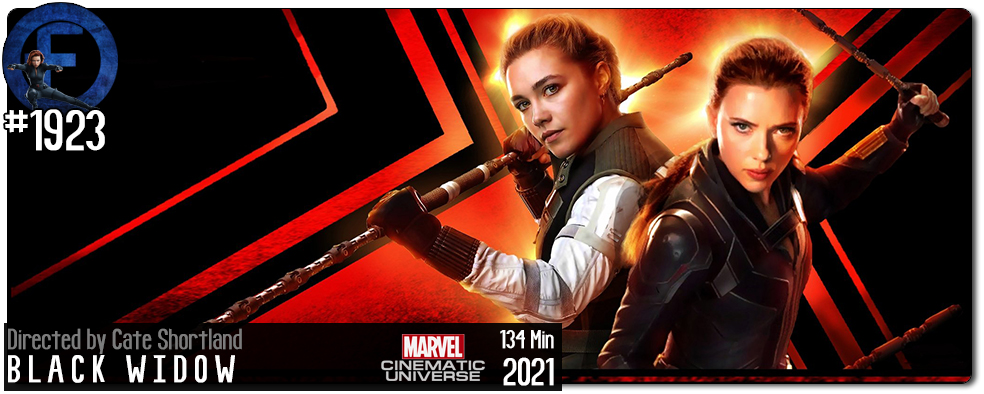Movie Review – Black Widow (2021)
Principal Cast : Scarlett Johansson, Florence Pugh, David Harbour, OT Fagbenle, Olga Kurylenko, William Hurt, Ray Winstone, Rachel Weisz, Ever Anderson, Violet McGraw, Michelle Lee, Shaina West, Nanna Blondell, Simona Zivkovska.
Synopsis: Avenger Natasha Romanoff re-unites with her sister Yelena on a global mission to find the infamous Red Room and destroy it, freeing all those using the nomenclature “Black Widow”.
********
Set between the events of Marvel’s Captain America: Civil War and those of Infinity War, Cate Shortland’s Black Widow sees the enormously popular franchise finally give center stage to its most prominent female character, essayed for perhaps the final time by Scarlett Johansson. Although intended as the kick-off for Marvel Studio’s Phase Four of its ongoing cinematic universe, Black Widow was delayed considerably due to the Covid-19 pandemic, eventually landing in cinemas after the debut of both WandaVision and The Falcon & The Winter Solider, and over a year after it was supposed to arrive. It matter little, as Black Widow most definitely stands on its own two feet. Less reliant on the ongoing MCU narrative than the films around it, due largely to the fact that Johansson’s character made the ultimate sacrifice in Avengers: Endgame, leaving Black Widow to serve as a kind of prequel send-off, a feat it achieves with a considerable amount of skill.
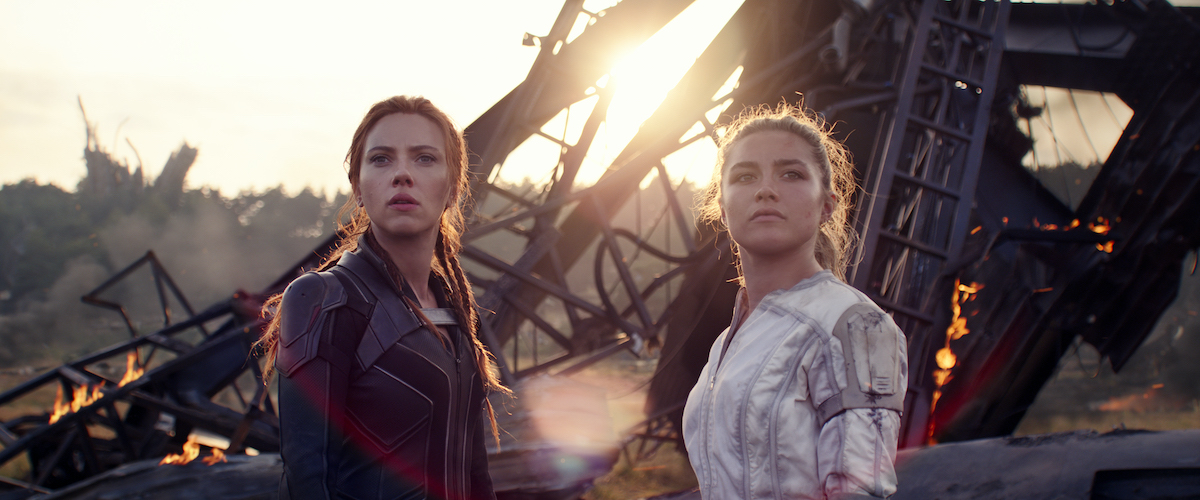
1995: Ohio, we meet a young Natasha Romanoff (Ever Anderson) and her sister Yelena (Violet McGraw), who live with their Russian parents Melina (Rachel Weisz) and Alexei (David Harbour). Unbeknownst to the two girls, their surrogate parents are undercover agents working to infiltrate SHIELD, which they accomplish although not without a desperate escape from the United States after their discovery. Following their escape, the cruel Soviet boss Dreykov (Ray Winstone) has the girl sent to the Red Room, where they will be brainwashed into becoming master assassins, “black widows”. In 2016, following the events of Civil War, Natasha (Scarlett Johansson) is on the run from the UN for violating the Sokovia Accords. When Yelena (Florence Pugh) contacts her with a formula for undoing the brainwashing the other Widows have succumbed to, the pair locate their former “father”, break him out of a high security Russian gulag, and their “mother”, to locate the whereabouts of the Red Room and destroy it, along with Dreykov. Standing in their way, however, is a powerful assassin capable of stopping them, the Taskmaster (Olga Kurylenko), whose link to Natasha’s past brings its own set of unique emotional problems.
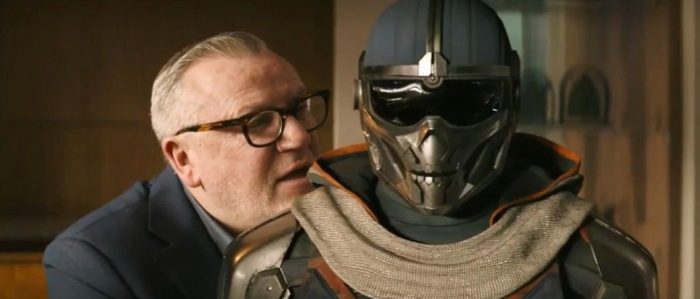
Johansson’s Black Widow has long been a fan favourite within the MCU, appearing first in Iron Man 2 before burgeoning into a full-fledged and intrinsic member of the Avengers across the decade-plus length of the Infinity Saga. The character’s demise in Endgame was a cathartic and emotionally poignant resolution to her arc of an assassin, whose violent past often brought her an internal conflict of repaying society for all the bad things she had done. Exactly why Marvel decided to give Black Widow a prequel film after Endgame, I’m not sure, and Cate Shortland’s film doesn’t offer much explanation for that either; Black Widow just exists as a fun flashback for Johansson, a one-and-done entry to flesh out her character even more than the supporting work in the Avengers films had allowed. That the fact Black Widow comes after Endgame, but is set between prior films, negates a lot of the tension in the film – that is, we know she survives all this – but for what it is the film suffers no indignity of poor execution or unflattering story points to achieve its goal in bringing ScarJo’s final turn as the famous assassin full circle.
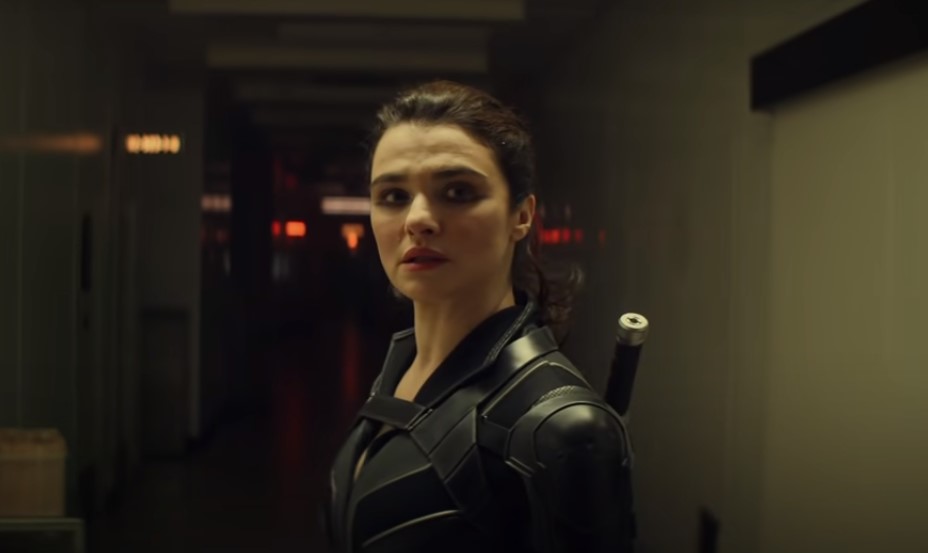
It’s fair to say that Black Widow sits well within the middle-tier of MCU films. It’s not the best of the bunch, which is somewhat disconcerting, but it is still a fun, frothy adventure lark with humour and action to spare. Johansson slides back into the role with ease, and turns the hard-edged assassin we saw in those early films into a more rounded and empathetic character. Johansson is outshone completely by Florence Pugh as Yelena, which is either a worry (for Johansson) or a blessing (for us) because if the film intends to hand the baton of the “black widow” appellation to Pugh going forward in the MCU then I’m all for it. The dynamic between Johansson and Pugh is definitely sisterly despite the 10 year age gap between the actresses, and they have a natural warmth and charm to their playful banter and bickering that does delight. David Harbour is great as Alexei, aka the Red Guardian, Russia’s only super-soldier who spends his prison time waxing lyrical about the time he fought Captain America, and the actor chews as much of the scenery as he possibly can. Rachel Weisz is serviceable as Melina, although both her role and that of Ray Winstone’s Dreykov, are paper thin and among the few weaknesses in the movie. A minor cameo appearance of William Hurt’s US Secretary of State Thaddeus Ross is included to remind us all that the film is an MCU film, as well as exactly where it fits into the franchise’s chronology. In fact, there are a number of name drops and references to past MCU films sprinkled in just to ensure the audience knows its got the Marvel branding. And of course, the inevitable end-credit sting reminds us that there is an ongoing franchise working behind the scenes here.
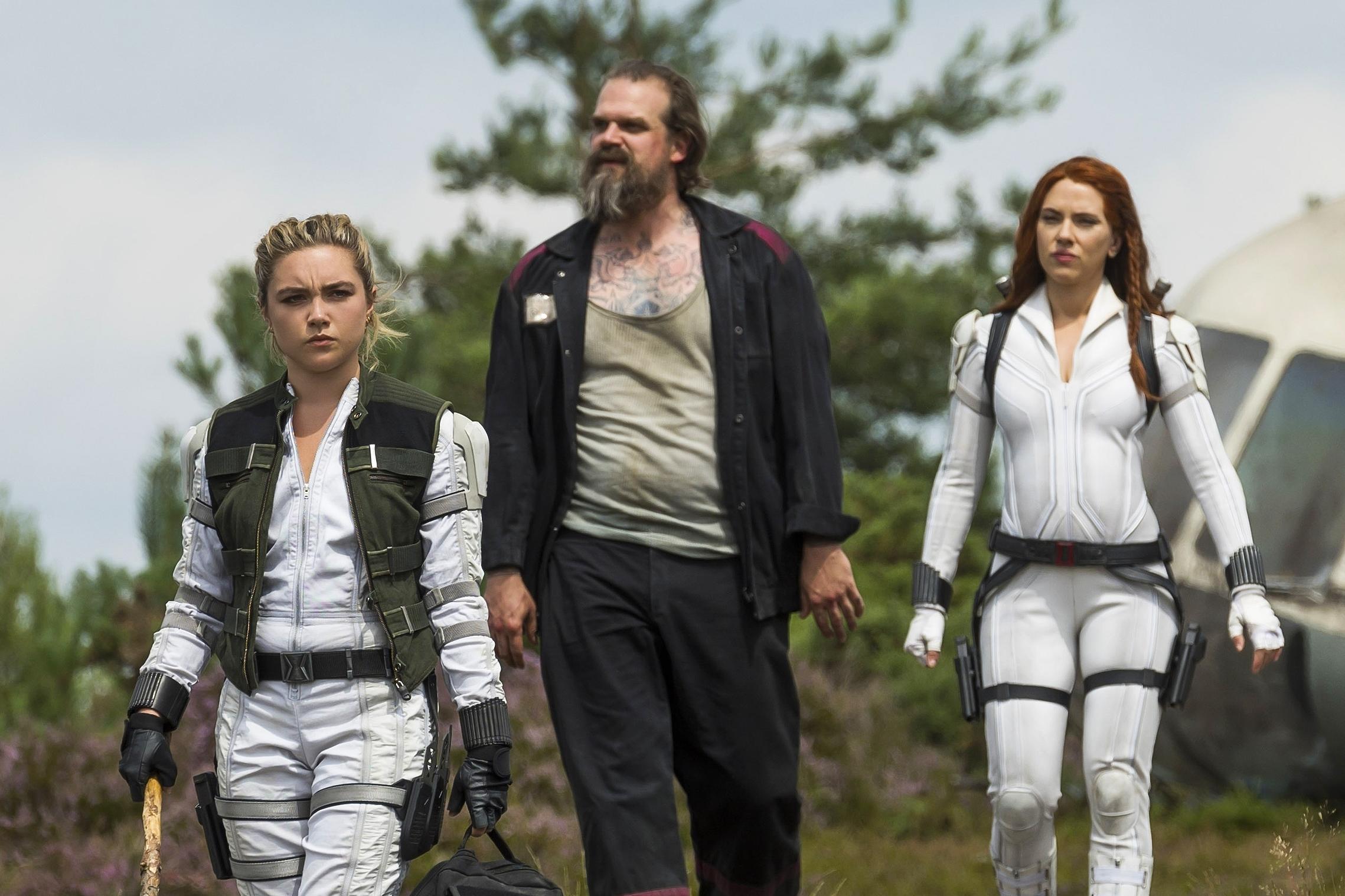
Despite being a Marvel movie, Black Widow surprisingly works best when the action is absent and the characters get their moments to shine. The film’s weaker moments come when the action starts to crank up, and Marvel’s predisposition to lean heavily into ironic humour and gags to splinter the tension rears its ugly head. That’s not to say Black Widow is bad in this sense, far from it. It does, however, undercut crucial backstory and subtext the film could have really worked with had they the gumption to avoid comic-book film clichés. Story points about child abuse, human trafficking and slavery, particularly involving young women, is a redolent narrative in the era of #MeToo and Black Widow touches on these things with, sadly, the slightest of fingertips. Instead of a giant platform to bring this kind of thing to attention, Black Widow subverts it all by showcasing yet another effects-heavy barrage of physics-defying action and stunts, not to mention Lorne Balfe’s enthusiastic score. It felt like an opportunity wasted, a victim of the studio’s desire to stick fast to a PG-13 rating. Can’t have girls being tortured in a PG film, can we. Conversely, the film does jab playfully at genre tropes such as the comic-book-movie’s penchant for having its female characters pose in all kinds of ridiculous physical ways – perhaps the best laugh in the movie.
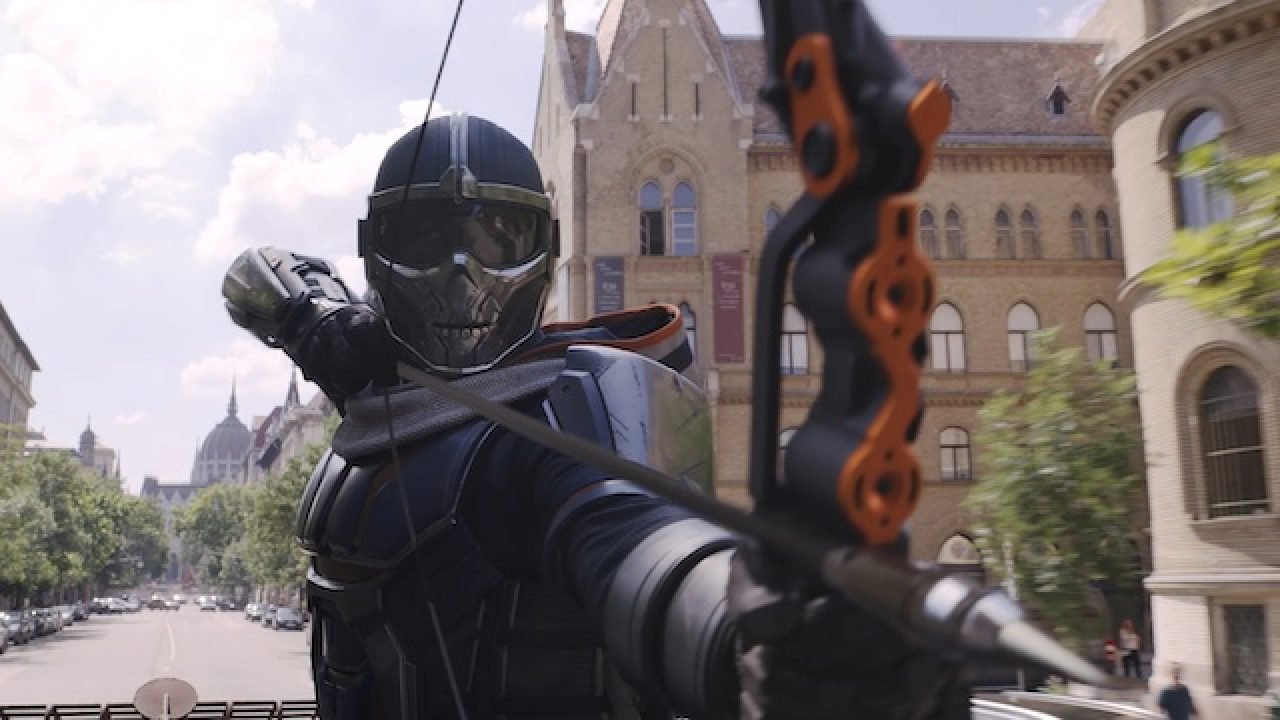
In terms of pure escapism, Black Widow is engaging to the point of being enjoyable but you also can’t help but feel that it’s a tad thin. The espionage thrills I expected from a film about the MCU’s most famous assassin aren’t there, the chase and fight sequences are serviceable most of the time (damning with faint praise, I know), and there’s an issue of pacing I couldn’t quite put my finger on. Had the film fleshed out the relationship between Natasha and Yelena a lot more, or added more complexity to the dynamic between Alexei and Melina, maybe…. it just all feels too rushed, to thrown together and lacking in a smooth, organic flow of any kind. Shortland’s action sequences rely heavily on CG and green screen, which isn’t problematic although with Marvel having raised the bar into the stratosphere with the last few Avengers films, Black Widow’s at-times ropey visuals do seem like a step backwards. The physical action, such as a frenetic chase between Natasha, Yelena, and a group of Widows who have come to kill them both in an apparent “safe house”, ratchets up the tension but iffy editing seem to confuse more than capture the excitement.
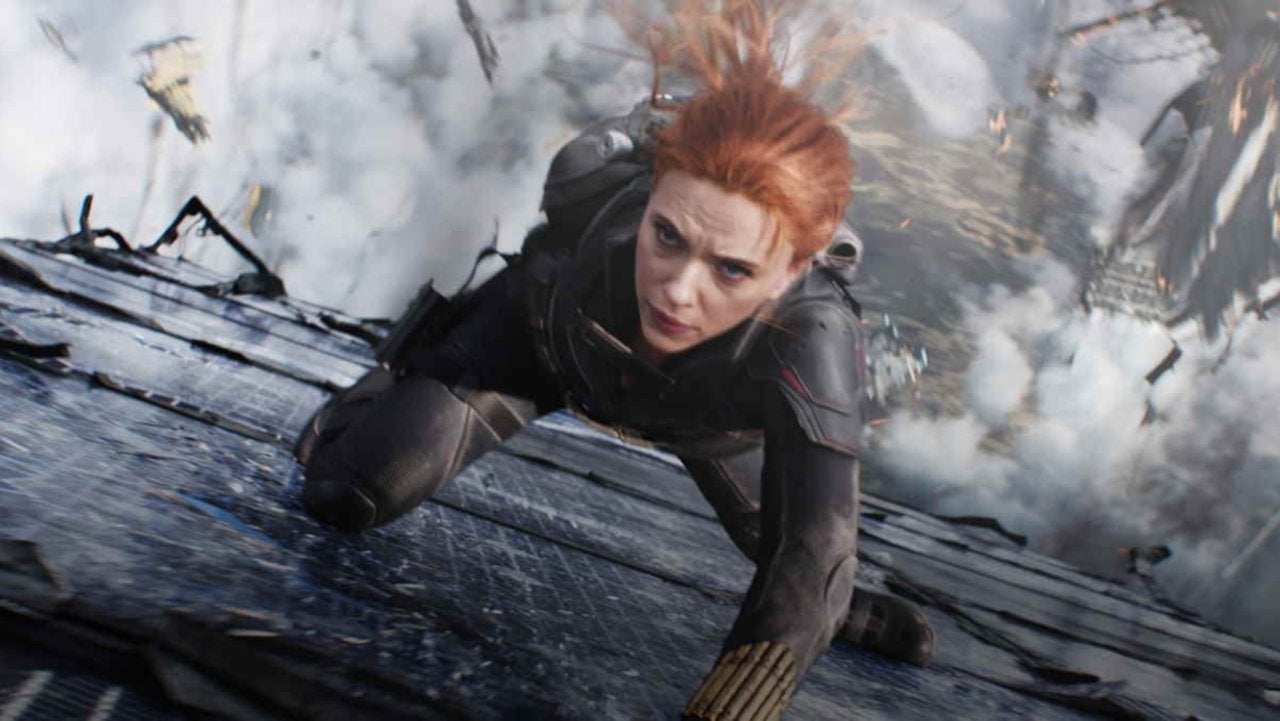
Black Widow is a serviceable, entertaining if flawed MCU outing that works as Scarlett Johansson’s reputed swansong in the title role. One could argue that the film’s villains lack the meaty substance to make the clash with Natasha and Yelena truly spark like it needed to. Yet, the bombastic destruction and swathes of CG-infused aerial nonsense cluttering the noisy final act ensure that regardless of your thoughts of Johansson’s portrayal of the role over the years, or whether or not Pugh’s Yelena will slide into position in the ongoing Avenger’s roster for the foreseeable future, Black Widow is content to sent off Natasha Romanoff with as little red left in her ledger as possible.

